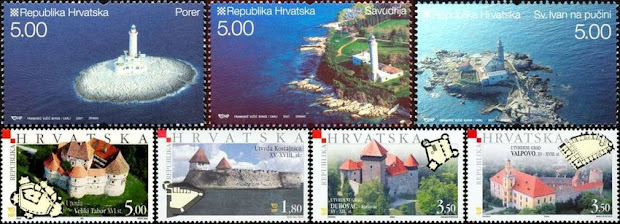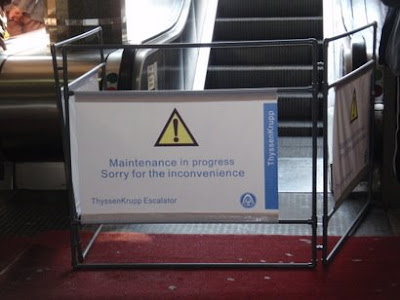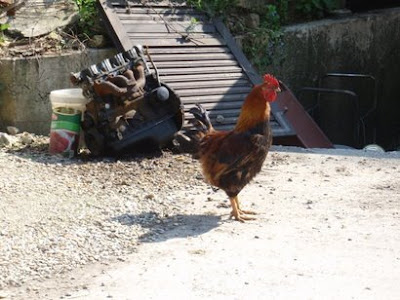The social democrats try to warm the electorate for the upcoming local elections with
manekenke or models (I wonder how many Croats know of the Dutch origin of this word - photo
Jutarnji list). Political and educational temperatures ran high already. The economic recession and budgetary problems forced the Croatian government to cut the salaries of a public sector workers.

Public sector workers aren't happy with that and will start a strike on 13 May that should culminate in a big demonstration on the 16th, pre-election day. I am not sure whether the great number of workers that are, almost as a habit, on sick leave will join in, but striking nurses, professors, teachers and others who work in Croatia's monstrously big public sector should cause serious problems for ordinary citizens.

The expected strike of university staff will not have too great consequences as many students are on strike themselves for almost three weeks now. It is an almost nation-wide strike (Pula, Rijeka, Split) but the center is, of course, Zagreb. The core of the striking students study at the Faculty of Philosophy. Other than its name suggests, this faculty is the largest and most important faculty in the country and is a true monolith. You can study there everything from art history, Japanology, Turkish, psychology, sociology, linguistics to literature and archeology. There is so much to choose that 2 out of 3 students never make up their mind and leave higher eduction without finishing their studies. The rest, 1 out of 3, finishes on average after seven years.

An intolerable situation, you would say. But then you haven't met Croatian students yet. Instead of protesting against the chronic shortage of study materials, books, electronic journals and likewise, they protest against paying a small tuition fee and demand free education instead. With pathetic slogans like "Znanje nije roba" (Knowledge is not a commodity) and "Jedan svijet, jedna borba" (One world, one struggle) they try to shift the financial burden of their protracted studies to the rest of the Croatian population, which is not particularly wealthy. One should know that students pay only 16 euro per month for a room in a dorm (2 students per room), 70 cents for a dinner in the student restaurant (including a drink) and nothing for public transportation. Cinemas, theaters, museums and anything that is remotely connected to a student's life are available at reduced prices. Minister of Education Dragan Primorac offered free eduction for all students who successfully get a degree, but the students didn't go along. Everything should be "free" for "everybody".
There is no such a thing as a free lunch, said Milton Friedman, but as the students also protest against capitalism, privatization and liberalism, anything that makes economic sense will fall on deaf ears. Croatia, by the way, has preciously little of either capitalism, privatization or liberalism.
 Lisinski itself is a particular building too. When I saw it for the first time, I'd swear it was an indoor swimming pool.
Lisinski itself is a particular building too. When I saw it for the first time, I'd swear it was an indoor swimming pool. It looks a lot better from inside, though gravely brown colours dominate, and the acoustics are fine. It is hoped that Lisinksi will be back in operation by October 16. Fortunately, Croats showed some irony regarding the asbestos in Lisinki. Quite rare, and therefore refreshing.
It looks a lot better from inside, though gravely brown colours dominate, and the acoustics are fine. It is hoped that Lisinksi will be back in operation by October 16. Fortunately, Croats showed some irony regarding the asbestos in Lisinki. Quite rare, and therefore refreshing.




































